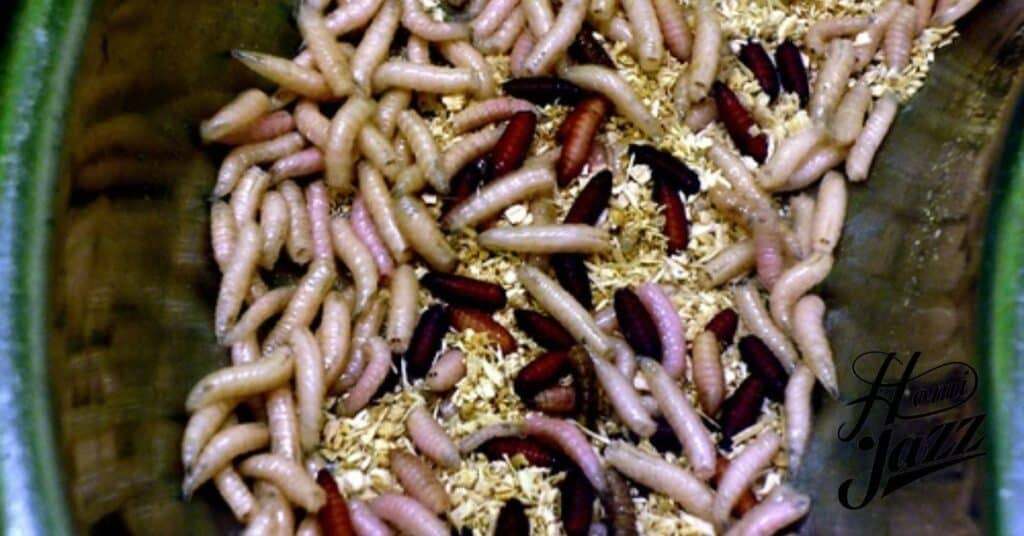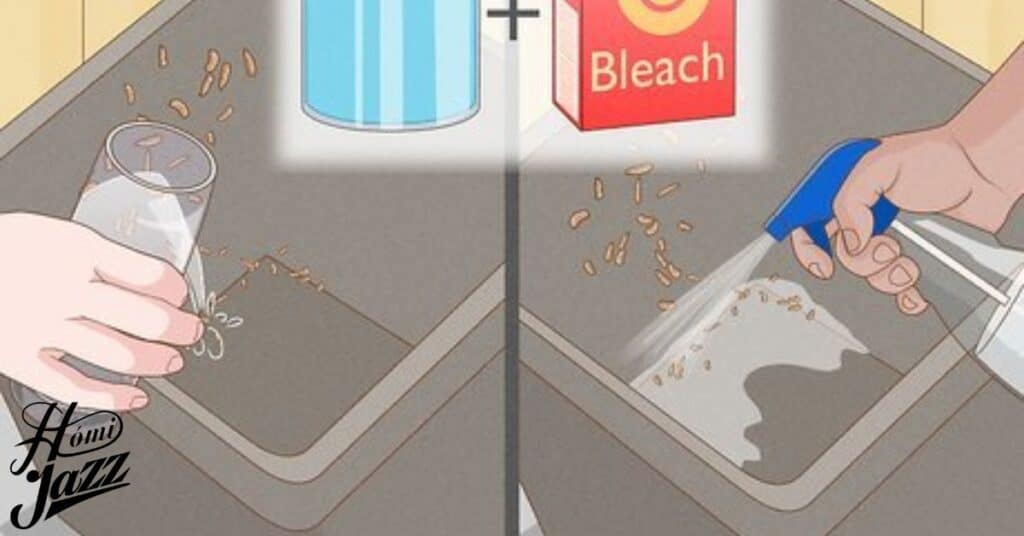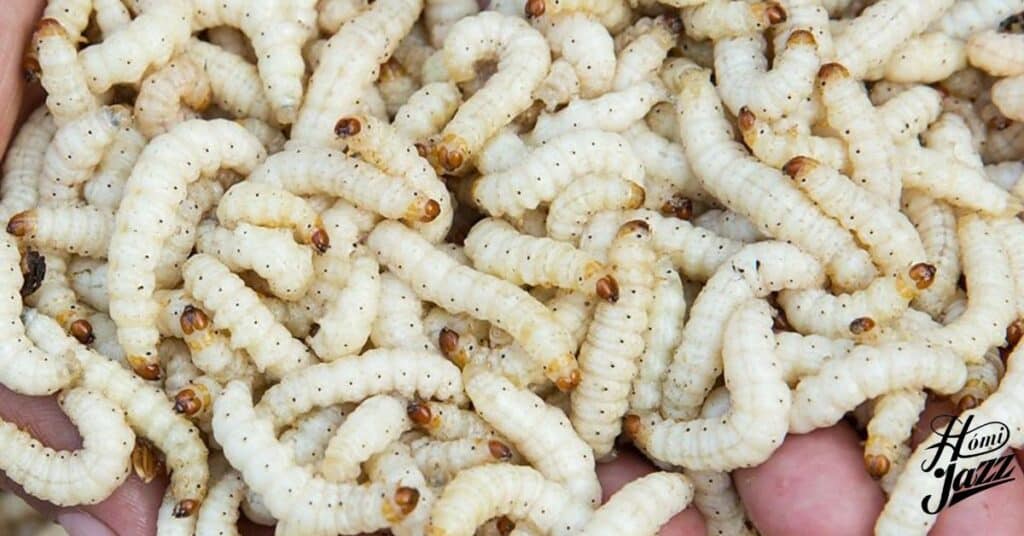Dealing with maggots can be quite unsettling, as these larvae can infest various environments and pose health risks. Fortunately, there are effective methods to eliminate them swiftly and efficiently. By understanding what kills maggots on contact, you can tackle infestations promptly, ensuring a clean and safe environment.
When faced with a maggot infestation, quick action is essential to prevent further proliferation and potential contamination. Knowing the right methods to eradicate maggots on contact can save time and minimize the spread of these pests. From household remedies to commercial solutions, various approaches can effectively eliminate maggots, providing peace of mind and hygiene assurance.
What are Maggots?
Maggots are the larval stage of flies, which emerge from eggs laid by adult flies. They are often white or cream-colored and can vary in size depending on the species. Maggots typically have elongated bodies with no legs, but they possess mouthparts for feeding.
These larvae thrive in environments rich in organic matter, such as rotting food, garbage, or animal waste. They play a crucial role in decomposition by breaking down organic material into simpler forms. Despite their beneficial role in nature, maggots can become a nuisance when they infest homes, garbage bins, or other areas where hygiene is essential.
Understanding the Lifecycle of Maggots

The lifecycle of maggots begins when adult flies lay eggs on suitable organic matter, such as rotting food or animal waste. These eggs hatch into tiny larvae known as maggots within a few hours to days, depending on environmental conditions.
As maggots feed on the organic material, they grow rapidly, shedding their skin several times in a process called molting. This growth stage, known as the larval stage, lasts for several days to weeks, during which maggots consume ample nutrients to fuel their development. Once fully grown, maggots enter the pupal stage, where they transform into pupae, encased in a protective cocoon-like structure, as they prepare for their final stage of development as adult flies.
How do maggots get into my bin?
Maggots often find their way into bins due to the enticing odor of decomposing organic matter. Flies, searching for suitable egg-laying spots, may land on uncovered bins, laying their eggs directly on the waste. Flies might deposit eggs on food scraps or waste even before disposal, introducing maggots into the bin along with the material.
Bins with inadequate seals, cracks, or gaps offer easy entry points for flies, facilitating egg-laying and kickstarting the maggot infestation cycle. Once inside, the bin’s warm and moist conditions expedite the hatching and proliferation of maggots, turning it into an ideal breeding environment for these pests.
What kills maggots instantly?

Several methods can effectively kill maggots instantly and provide a swift solution to infestations. One common approach is using boiling water, which, when poured directly onto maggots, causes rapid death due to the extreme heat. Another effective method is using insecticides specifically designed to target maggots, which quickly eliminate them upon contact.
Household products such as bleach or vinegar can also kill maggots instantly. These substances disrupt the maggots’ cellular functions, leading to their rapid demise. It’s essential to exercise caution when using these chemicals, ensuring they’re applied safely and under the product instructions to avoid any potential harm to humans or pets.
Can bleach kill maggots?

Yes, bleach can effectively kill maggots. When bleach comes into contact with maggots, it disrupts their cellular functions and leads to their rapid demise. The high alkalinity of bleach is particularly effective in destroying the maggots’ tissues, ultimately causing their death.
For example, if you discover maggots in a trash bin, you can create a solution of bleach and water and pour it directly onto the maggots. The bleach will quickly kill the maggots upon contact, helping to eliminate the infestation. However, it’s important to handle bleach carefully and ensure proper ventilation when using it to avoid any harmful fumes. Additionally, always follow safety precautions and dilution guidelines provided by the manufacturer to prevent accidental injuries or damage to surfaces.
Read this blog:http://homijazz.com/curtains-above-the-top-of-the-window-called/
HOW TO USE BLEACH TO KILL MAGGOTS
Using bleach to kill maggots is a straightforward process. First, prepare a solution of bleach and water in a container. The ratio typically recommended is one part bleach to ten parts water.
Once the solution is ready, pour it directly onto the maggots or the affected area where the maggots are present. Ensure thorough coverage to maximize effectiveness. For example, if maggots are discovered in a trash bin, you can pour the bleach solution directly onto the infested area or spray it using a spray bottle for targeted application.
After applying the bleach solution, allow it to sit for some time to ensure all maggots are killed. Then, carefully dispose of any remaining maggots and thoroughly clean the area to remove traces of both the maggots and the bleach solution. Always handle bleach with care, wear protective gloves and ensure proper ventilation when using it.
Precautions to Take When Using Bleach
Precautions When Using Bleach to Kill Maggots
Protective Gear: Wear gloves and eyewear to shield against skin irritation and eye damage from bleach.
Ventilation: Work in a well-ventilated area to minimize inhalation of harmful bleach fumes.
Avoid Mixing: Never mix bleach with other cleaning products or chemicals to prevent hazardous reactions.
Dilution: Use bleach in its diluted form as per the manufacturer’s instructions.
Moderate Usage: Avoid excessive amounts of bleach to prevent surface damage or discoloration.
Storage: Keep bleach out of reach of children and pets, and stored securely in a designated location.
Effective Methods for Maggot Control
Controlling maggots involves keeping your surroundings clean. Regularly clean trash bins and dispose of waste promptly. Securely wrap food waste to prevent flies from laying eggs.
Employing natural predators like parasitic wasps can also help. These predators target and consume maggots without harming the environment. By combining cleanliness and natural solutions, you can effectively manage maggot infestations.
How long do maggot infestations often last?
Maggot infestations typically last from a few days to a few weeks. The duration depends on factors like food availability and environmental conditions. Prompt action and proper sanitation can resolve infestations quickly.
If underlying causes aren’t addressed, infestations may persist. Poor sanitation and favorable temperatures can prolong the presence of maggots. It’s crucial to take proactive steps to address these issues for timely resolution.
Read this blog also:http://homijazz.com/faux-roman-shade-valances/
Frequently Asked Questions
Do bleach kill maggots?
Yes, bleach can effectively kill maggots.
What kills maggots instantly?
Boiling water and certain chemical agents like bleach can kill maggots instantly upon contact.
Can I spray maggots with vinegar?
Yes, you can spray maggots with vinegar.
What is the best maggot killer?
There isn’t a single “best” maggot killer; it depends on the situation. Options include boiling water, bleach, vinegar, insecticides, or natural predators like parasitic wasps.
Conclusion
understanding how to effectively eliminate maggots on contact is essential for maintaining a clean and hygienic environment. Boiling water, bleach, vinegar, and insecticides are among the effective methods to eradicate maggots swiftly. Each approach has its advantages and considerations, so choosing the most suitable method depends on factors such as safety, accessibility, and the severity of the infestation.
Practicing proper sanitation measures, such as keeping trash bins clean and securely sealed, can prevent maggot infestations from occurring in the first place. By combining these methods with proactive prevention strategies, individuals can successfully combat maggots and ensure a pest-free living space. Remember, prompt action and diligence are key to effectively managing and eliminating maggot infestations.

Howdy is behind this home blog, sharing personal stories, thoughts, and insights from daily life. I can dedicated to bringing you the latest trends, expert advice, and creative ideas to make your home the sanctuary you’ve always dreamed of. Whether you’re looking for DIY tips, home decor inspiration, home loans, rentals or renovations.







